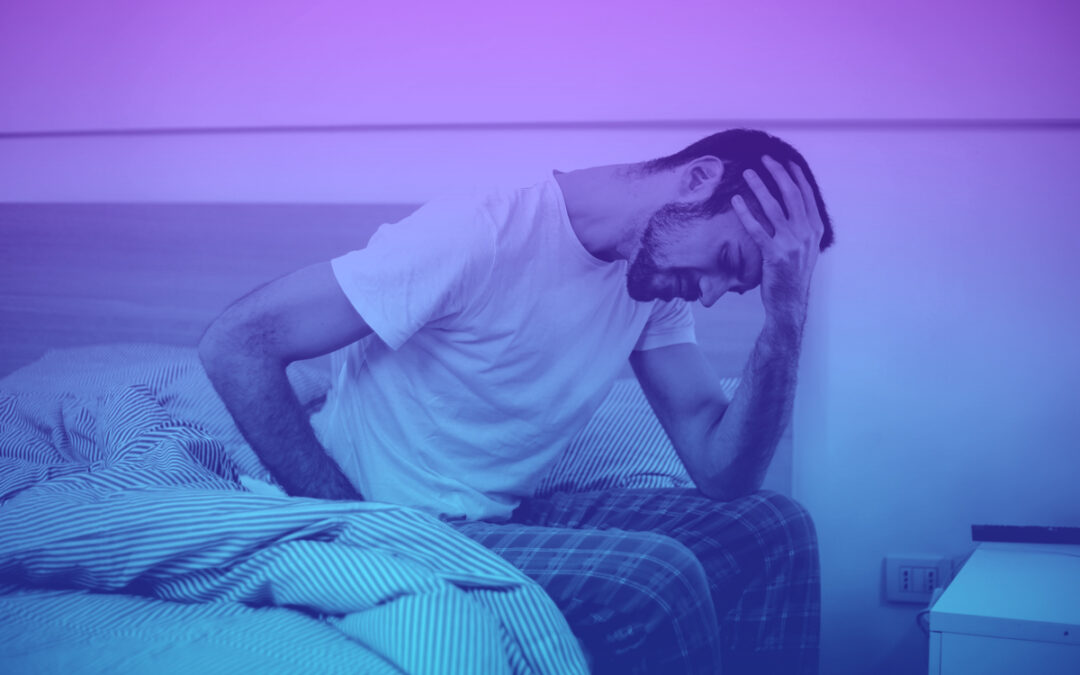Withdrawals, the Flu, or Something Else?
 During this time of uncertainty, there are numerous messages in the media about COVID-19 – the disease caused by the novel coronavirus – and what steps you should take if you are immunocompromised, elderly, or are otherwise at risk for this new illness. You might not think these messages apply to you, and it’s true that you might not suffer from any pre-existing conditions such as asthma, heart disease, or high blood pressure that put you at higher risk for COVID-19. However, due to the quarantine many of us are facing, you might have decided to either quit or curtail your use of addictive substances. The withdrawal process involves a series of symptoms that range from unpleasant to life-threatening as your body tries to detoxify itself from the harmful effects of the substance. Should you assume that these symptoms are side effects of quitting your drug of choice, or should you worry that the chills, aches, and coughing align with what you have read about COVID-19? Should you call about being tested? Should you disclose your drug or alcohol dependency to your health care provider? Read on for help navigating through this difficult situation you might be facing during this unprecedented time in history.
During this time of uncertainty, there are numerous messages in the media about COVID-19 – the disease caused by the novel coronavirus – and what steps you should take if you are immunocompromised, elderly, or are otherwise at risk for this new illness. You might not think these messages apply to you, and it’s true that you might not suffer from any pre-existing conditions such as asthma, heart disease, or high blood pressure that put you at higher risk for COVID-19. However, due to the quarantine many of us are facing, you might have decided to either quit or curtail your use of addictive substances. The withdrawal process involves a series of symptoms that range from unpleasant to life-threatening as your body tries to detoxify itself from the harmful effects of the substance. Should you assume that these symptoms are side effects of quitting your drug of choice, or should you worry that the chills, aches, and coughing align with what you have read about COVID-19? Should you call about being tested? Should you disclose your drug or alcohol dependency to your health care provider? Read on for help navigating through this difficult situation you might be facing during this unprecedented time in history.
Withdrawals
It might surprise you to know that of the 21 million Americans who suffer from an addiction, only 10% elect to receive treatment. It would be fortunate if all of these people who did receive treatment were able to recover under the eye of trained professionals, but during this period of social distancing, there are likely thousands of people trying to quit their drug of choice while stuck at home. If you’ve never quit using an addictive substance before, you might be confused as to what the symptoms of withdrawal are in the first place. Opiate withdrawal, for example, might include nausea, vomiting, cold sweats and diarrhea. Alcohol withdrawal symptoms overlap in the arena of chills, sweating, and stomach problems, but there is also the well-known phenomenon of delirium tremens, or “DT’s”, which involve confusion, hallucinations, fever, sweating, and a racing pulse. While this doesn’t sound like it would be confused for something else – especially if you just quit using opiates or drinking alcohol – withdrawal symptoms might also include flu-like symptoms such as fever, chills, and even a runny nose, which can make it easy to confuse them with a viral infection.
Seasonal Influenza
Influenza, or the “flu”, is a well-known cause of wintertime sneezes and days stuck under a comforter on a couch while sipping hot soup. The symptoms – cold chills, high fevers, and dry cough – can look suspiciously like the novel coronavirus is at work against your immune system. The flu and COVID-19 are both caused by viruses, after all. This year’s flu season, fortunately, is winding down, so if you suddenly feel flu-stricken in late April through October, it’s likely that there’s something else going on. Consider, as well, that if your flu symptoms go away when you use your drug of choice again, this points to your symptoms being caused by withdrawal – not the flu. On the other hand, a cough and a headache often accompany the flu, but not withdrawal.
Allergies
It might seem odd to include springtime allergies in a discussion of opiates, withdrawals, and pandemics, but some individuals do have allergies severe enough to warrant investigation. Sneezing, extreme nasal congestion, and productive (mucous-filled) coughing can suggest either a viral infection or out-of-control allergies. Again, it’s always best to contact your healthcare provider if you are unsure of what ails you, but there is one quick way to tell if it’s allergies that ail you: itching. If you itch, especially in your nose, eyes, and ear areas, it’s likely allergies instead of an insidious infection. Sneezing and severe congestion are also not common COVID-19 symptoms.
COVID-19
It would be remiss not to include the symptoms of COVID-19, because while there is a lot of overlap between its symptoms and those of drug and alcohol withdrawal, there are some obvious signs that are much more commonly linked to the viral coronavirus than a detox situation. High fevers, while a possible symptom of withdrawal, are more likely to be caused by a virus such as the flu or the novel coronavirus. Shortness of breath, chest pain, and developing pneumonia are also common with COVID-19 and rarer with the flu, allergies, or the common cold. Coronavirus is a new entity, so there is not as much information on it as there is the flu – which is tracked closely by the Centers for Disease Control every year – but researchers have found that while numerous people go on to develop severe cases of COVID-19, others have a milder case that is similar to the common cold. Milder cases, because of their vague symptomology, could unfortunately be complicated or even obscured by symptoms of drug or alcohol withdrawal. When in doubt, it’s best to get tested so you do not put yourself or others at risk.
Special Concerns
There are a few unique concerns in the current climate that complicate recovery for drug and alcohol addiction. Due to the fact that many people in recovery find comfort and strength in attending meetings, such as 12-step meetings or group therapy sessions, they might be struggling with the fact that these meetings have been either cancelled or postponed due to social distancing concerns. For some recovering addicts and alcoholics, attending weekly – or depending on where they are in their program, even daily – meetings is crucial to their recovery, their mindset, and their wellbeing as a whole. Virtual support groups are possible, of course, but for some, especially older citizens, the distance complicated with unfamiliar technology is not as helpful as an in-person meeting.
Another concern for those still struggling with an active addiction is that addiction – in its many forms – is not a logical disease. Concerns for social distancing might be thrown out the window in the quest for an open liquor store when the house has run dry. Orders to shelter in place might not be acted upon when someone suffering from addiction has taken the last of his or her supply of prescription opioids. Overdosing alone because of a quarantine situation is also, unfortunately, a realistic fear. Getting treatment, especially in a time when the healthcare system is already overloaded with cases of COVID-19, might also be confusing. Due to the fact that a substantial number of Americans who suffer from depression or anxiety – 20% – also deal with substance abuse, the isolation and panic caused by the COVID-19 crisis could also be a trigger for relapse for those who have been able to maintain their sobriety thus far.
Regardless of how long you have been struggling with drug or alcohol addiction, please remember that it is never too late to ask for help. If you are struggling to quit, or if you are not sure how to navigate quitting, there are resources available. Similarly, if you are concerned that your health problems might be influenced by COVID-19, or if you are worried about the state of your health in the light of this pandemic, remember that free testing is available at Clean Recovery Centers for clients as well as staff members. Call Clean Recovery Centers today to begin writing your own story of recovery.
Sources:
- https://www.opiate.com/withdrawal/mild-opiate-withdrawal-symptoms-vs-the-flu/
- https://www.cdc.gov/coronavirus/2019-ncov/symptoms-testing/symptoms.html
- https://www.cdc.gov/flu/weekly/usmap.htm
- https://www.cleanrecoverycenters.com/clean-recovery-centers-offers-covid-19-testing-for-clients/
- https://www.nytimes.com/2020/03/26/health/coronavirus-alcoholics-drugs-online.html


